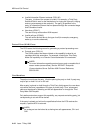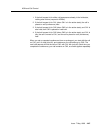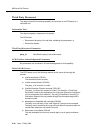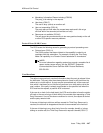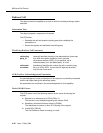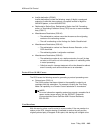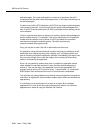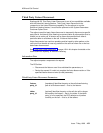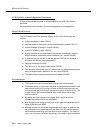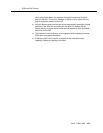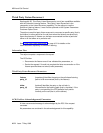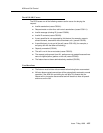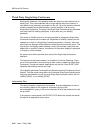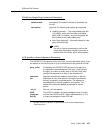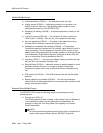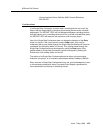
ASAI and Call Control
4-52 Issue 7 May 1998
ACK (Positive Acknowledgement) Parameters
A listen-disconnected message is acknowledged by the ECS if the request
succeeds.
No parameters are contained in the acknowledgement for this capability.
Denial (NAK) Causes
The ECS issues one of the following reasons as the cause for denying the
request:
■ Invalid association (cause CS0/81).
■ Request made on other than call control associations (cause CS0/111).
■ Invalid message (missing IE) (cause CS0/96).
■ Invalid IE contents (cause CS0/28).
■ A party specified is not supported by this feature (for example, maps to
announcements, extensions without hardware, etc.) (cause CS0/28).
■ A specified party is not part of the call, (cause CS0/100) (for example, a
two-party call with the talker still alerting).
■ Capacity exceeded (CS3/40).
■ The call is not in the correct state (cause CS3/63).
■ The request to disconnect from ALL parties was not granted because there
were no eligible (talker) parties on the call (cause CS0/98).
■ The feature has not been administratively enabled (CS0/50).
Considerations
■ The listener must be connected before being listen-disconnected.
■ The listener party_id must map to physical endpoints associated with voice
stations and trunk ports, but may not map to internal resources such as
tone resources, announcements, speech ports, group extensions, etc. This
means that the disconnected listener may not be disconnected from
announcements.
■ All analog and multi-function sets (digital, BRI, hybrid) as well as
off-premises stations (OPS) are supported.
■ Both incoming and outgoing trunk ports of any type are supported (that is,
digital, ISDN and non-ISDN).
■ Although any tone or voice path originating from a station or trunk on the
call is blocked for the listen-disconnected party, it is still possible that the
disconnected listener may still hear faint tones and speech. This can only
occur in a multi-party call where the primary voice path is disconnected but



